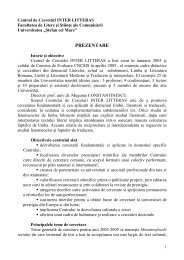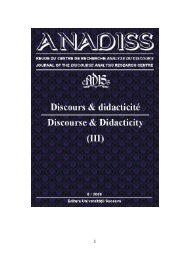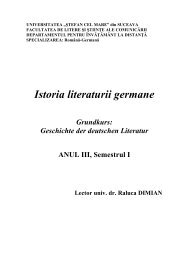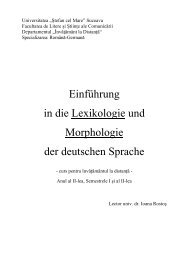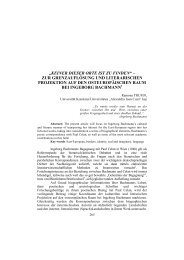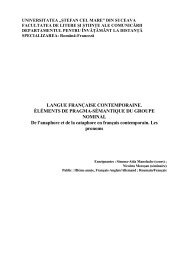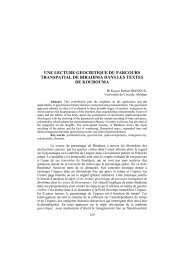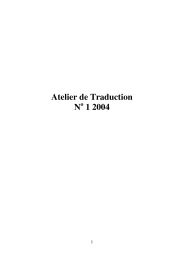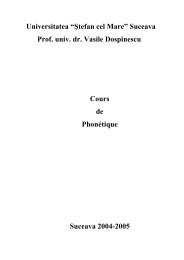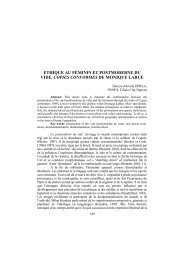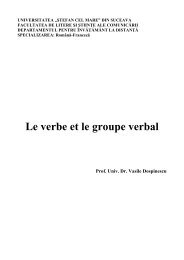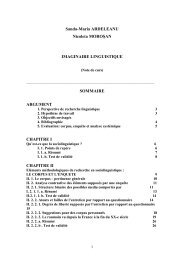Le discours de la francophonie
Le discours de la francophonie
Le discours de la francophonie
Create successful ePaper yourself
Turn your PDF publications into a flip-book with our unique Google optimized e-Paper software.
Oana Coşman – Investigating specialised <strong>discours</strong>e…In 2000, Spencer-Oatey outlined a rapport managementframework, which draws on social pragmatics, politeness theoryand face theory. He exp<strong>la</strong>ins the ways in which interactants use<strong>la</strong>nguage in or<strong>de</strong>r to manage re<strong>la</strong>tionships. His mo<strong>de</strong>l provi<strong>de</strong>s away to account for all aspects of an interaction and its management.As Bargie<strong>la</strong>-Chiappini states “In this way, it is of potentialinterest to business <strong>discours</strong>e researchers interested inaccounting for aspects of re<strong>la</strong>tional talk in business interactions,ranging from politeness forms and accommodation strategies tocontentious and conflictive strategies, as well as the linguisticmanifestations of power, and the motivations that might un<strong>de</strong>rliesuch behaviours.“ 51. Politeness Strategies in the Business DiscoursePoliteness can be regar<strong>de</strong>d as a social value in human interaction,including business, and its universal principles are reflectedin <strong>la</strong>nguage use. In the field of speech act studies, most ofthe previous research re<strong>la</strong>ted to politeness focused on daily communication.However, as the studies on speech acts are <strong>de</strong>velopingfaster and broa<strong>de</strong>r, linguists have been paying more andmore attention to specific fields of communication, for instance,technical written communication and business communication, toexplore the features of speech acts in different registers.There has been extensive research on politeness in professionalwritten <strong>discours</strong>e in the business settings, as, for instance,Trosborg (1995), Maier (1992), Myers (1989) (as cited in Bargie<strong>la</strong>-Chiappini1997:639). Politeness theory has been applied towritten English business communication in general (e.g. Pilegaard1997) and requesting in business messages in particu<strong>la</strong>r (e.g.Bargie<strong>la</strong>-Chiappini & Harris 1997, Sipilä 1997, Akar 1998). Requestsin written business communication tend to be formu<strong>la</strong>tedindirectly for reasons of politeness. Research on “request” speechacts has been carried out since the <strong>la</strong>te 1990, i.e. Neumann's5 Francesca Bargie<strong>la</strong>-Chiappini, Catherine Nickerson, Brigitte P<strong>la</strong>nken (2007),Business Discourse, Palgrave Macmil<strong>la</strong>n, p. 42.56



